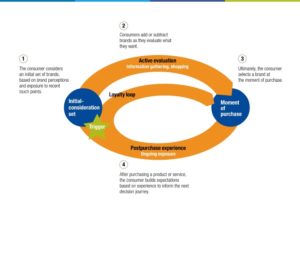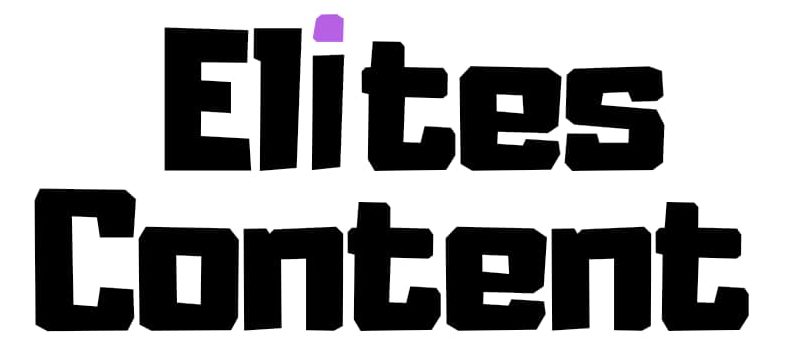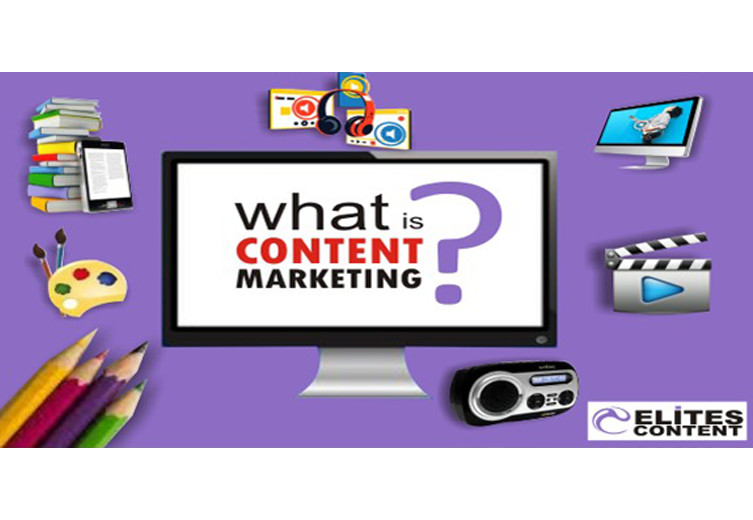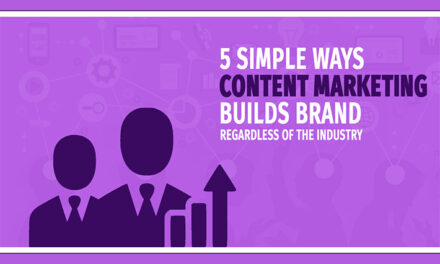If there is anything I would refer to as an old-but-new wine that never lost its taste then, it is content marketing.
This is because content marketing as an old marketing concept and strategy has been widely used by most successful companies over the years. They still used it till date without losing its value.
No doubt, if you have been around the digital marketing arena, then you already know that content marketing is a buzzword, and there are hundreds of articles published with the keyword each day.
But the fact still remains that most persons, especially newbies (beginners) still don’t get a clear view of what the concept is all about.
I was discussing with a friend who is a blogger few weeks ago. In the cause of our switch into digital marketing topics, I told him that I am a content marketer. He was like oh! What is that?
This article is set to ensure quick grasp of what the concept is all about in a twinkle of an eye. It also provides in-depth knowledge of how content marketing benefits your business. So even if you have been around the game, don’t miss this opportunity.
Have you ever wondered why some companies provide educative and beneficial materials to consumers; without the placement of their products and price tag to immediately compel them into purchase?
Have you in any way been given an educative material or an article sponsored and designed by a particular company that contains relevant information, and yet no sign of intention to sell at an immediate interval?
The truth is that those relevant information gotten from that educative material will soon or later be the reason to trust the company as a competent brand, which will also affect your action during purchase.
That is content marketing in action.
What is Content Marketing?
Content marketing is a type of digital marketing strategy that educates the consumers, make them experts and even advocates of a brand without necessarily showcasing products for sale at the same time.
It is a core part of digital marketing that has been proven profitable and beneficiary when done effectively. It has also appeared thousands of times in digital marketing publications.
In ensuring you get an in-depth understanding of the definition of content marketing, I carefully selected six powerful definitions that will aid your quick understanding of the concept.
But before then, let me give you a very simple yet comprehensive definition that will help you in the journey.
Content marketing is defined as a deliberate marketing strategy that allows an organization or a company to deliver valuable materials such as articles, e-books, images, videos, audios etc that educate a defined audience with the intention of creating knowledge enhancement and positive brand perception.
Looking at the definition above, there are underlined keywords. Those words were not underlined for beautification but because they make up the basic ideas behind content marketing. Don’t worry, you will understand it better after carefully reading through the definitions below.
6 Definitions of Content marketing
If you type in the keyword “what is content marketing?” on any search engine like Google, am sure you will see a whole lots of definitions.
The good news is that you don’t even need to search. Here are 6 definitions of content marketing that will speed up your knowledge.
Ok, let’s ride!
-
Content marketing is the marketing and business process for creating and distributing relevant and valuable content to attract, acquire, and engage a clearly defined and understood target audience with the objective of driving profitable customer action”. Joe Pulizzi , founder of Content Marketing Institute.
-
Content marketing is a strategic marketing technique that aligns business and consumer information needs with relevant content” Caitlin Burgess – Content marketing manager at Toprank
-
Content marketing is a device used by companies to educate, inform or entertain customers or prospects by creating attention or causing behavior that results in leads, sales or advocacy”. Jay Baer – Founder of Convince and Convert
-
Content marketing is engaging with your community around an idea instead of a product; What it is to try to serve the community first, and sharing information, ideas and experiences that benefit others without directly asking for anything in return”. Dan Blank, founder of We Grow media
-
Content Marketing is creating or curating non-product content be it informational, educational, entertaining, etc and publishing it to contact points with customers to get their attention, to focus on the topic around your solution, and pull them closer to learning more about you”. Sam Decker, Co-founder and Executive Chairman of Clearhead. Retrieved from Digital Intelligence
-
Content is anything an individual or brand creates for consumption. Blog posts, photographs, videos, infographics, tweets, and SlideShares are all examples of content. Content marketing is what makes all those consumable pieces of information work for you or your brand in a cohesive way. Jason Miller
Congratulations! I know you have gotten a very big light about the definition of content marketing. Don’t stop here, read on, there are better info ahead.
Further Explanations of Content Marketing
The definitions above reveal that business organizations that use content as a strategy do not just end up wasting their resources but they do it to get the goodies attached.
A recap of the definitions above show that:
- Content marketing is a deliberate marketing strategy that allows an organization to deliver valuable materials which educate a defined audience with positive intention.
- Content marketing is all about educating consumers and enhancing their knowledge via the provision of vital information in order to gain market trust and authority.
For instance, when a consumer gets positive perception about your company or brand it becomes easy to gain authority and trust.
Content marketing is carried out with intention of attracting and matching brands with a specified audience with the aim of getting profitable actions.
Ok, let’s take a minute to ask critical questions:
- What are your customers’ profitable actions?
- How does your business benefit from content marketing?
It is simple to answer.
Just know that what leads to a customer’s profitable actions and the outcomes are the benefits of engaging in the business of content marketing.
NIKE Inc: An Example of Content Marketing Practice
Nike Incorporated is among the American top and biggest multinational business organizations that is specialized in manufacturing and distribution of footwear, apparel, accessories etc.
Bill Bowerman and Phil Knight founded the company in 1964 as Blue Ribbon Sports.
How did Nike Inc. relates to content marketing?
In 1962, Bill Bowerman, co-founder of Nike began a jogging program and publish a three-page guide article titled “A Jogger’s Manual.”
In 1966, he published another 90-pages of article titled “Jogging” which gained huge success in America and sold over a million copies. The article contributed immensely towards Jogging activities in America.

Image Credit: Amazon
4 Ways Bowerman Did Content Marketing
- Bowerman never displayed any Nike’s product for sale but instead focused on providing valuable materials for his target market.
- He focused on engaging his defined audience with the benefits of jogging to their sport life.
- He also created demand for foot wears needed to perform better at Jogging and other sporty activities.
- He built a community, gained authority and trust by consistently educating his audience about Jogging.
Are you still wondering what you will gain practicing content marketing? Here are 5 common benefits content marketing can give to your business.
5 Benefits of Content Marketing
-
Brand knowledge Enhancement
When you create relevant content, it is a big way to educate your target audience (potential or actual consumers).
Consumers are rational beings, especially now that industrialization and rapid growth in technology have given them more learning and willpower.
Do you know that savvy-consumers prefer to get good knowledge of what they want before purchase?
A recent study from Mckinsey & Company on consumer decision Journey shows that today, consumers’ approach to brands have changed from traditional (simple) approach to a modern (complex) approach.
The study covered 20,000 consumers from three different continents and five industries. Results revealed that consumers decision-making process is in a circular journey of four stages:
- Initial Consideration (set of brands to buy)
- Active Evaluation (Research process)
- Moment of Purchase (Closure)
- Post-Purchase Experience. (building strong expectation to inform the next decision).

The stages provided a clear picture of how content marketing can be used to follow your customers in their decision journey.
At the initial consideration stage, an amazing and engaging content is needed to attract your consumers towards placing your brand for consideration.
At the active evaluation stage, consumers are seriously looking for relevant contents. They want to gather more information before making any other move.
Content marketing ensures the engagement of consumers with valuable and educative content. This is a in away of bringing them closer to your brand, in order to increase their knowledge about your brand.
Once your brand has successful passed the evaluation stage, a purchase is made.
Don’t forget that consumers decision journey is in circle. Hence, after purchase, consumers are building expectation based on experience. This will determine if they will come back or not.
-
Brand Recall
A Good content tells your brand story in the way that consumers will get engaged and not forget the experience in a hurry.
Few weeks ago I asked Vanessa my friend who is a movie freak to tell me the name of a movie among all she has watched since three months.
In less than a minute, she mentioned it. So when I asked why. She replied, “the movie cut me deeply, in fact, the movie’s storyline is more or less a part of my life history”.
Ok, let’s do a quick exercise and see if you will have the same experience.
Take a pause and ask yourself the name of a movie among all you watch six months ago.
Think for a minute. Have you? What is the result? It is simply the most engaging movie you could quickly recall, right?
You see? That’s how it is with consumers. They can quickly recall your brand among others if yours seems valuable to them.
-
Consumer Trust
Trust is among the biggest challenges of online business. Lots of organizations have lost millions because their customers don’t trust them.
Nobody wants to be hurt, I guess right?
So every rational consumer especially online consumers always take drastic measures to ensure their safety.
When consumers trust your brand, they are ready to follow you and they are ready to take a ride with you any time.
-
High online visibility
Content marketing is the best aid when it comes to gaining a high rank in organic or natural search result. That is, being among the results that will be seen when consumers search online using certain keywords.
Take for instance, when a consumers type a keyword say “Agege Bread”. Google search engine displays your company or brand without you paying to get a high rank.
That is a good example of high online visibility with natural or organic search results.
As a matter of fact, all the tweaks of Google search algorithms, whether Panda, Pigeon, RankBrain, Penguin, Hummingbird etc favor one thing and that is “good practice in content creation”.
It’s clear that good practice in content marketing will always keep you ahead of the game and place you in front of those who need your products.
-
Cost effectiveness
Getting high rank in Google’s search engine result pages (SERPs) or from any other search engine like Bing and Yahoo without paying a damn is cheaper than making payments at intervals, right?
Well, this question is a controversial one as there are still continuous debates about paid and unpaid (organic) page ranking.
Personally, I’ll say that both are good depending on your organizational size and the goal you want to achieve at a point in time.
For instance, a start-up in an online business will likely have little capital and will find it difficult to venture into pay-per-click (PPC) ads.
Rather, he will go for unpaid search engine optimization (SEO) tactics to prevent much spending. As a matter of fact, there is no SEO without content.
Obviously, content marketing has the capacity to help in placing your website on top without a single pay to search engines and this makes it cost effective.
Final Note
Keeping it very simple, content marketing involves creating valuable contents for a specified or targeted audience.
It educates, engages and connects your brand with a target audience which later results to beneficial results.
Content marketing has been around the marketing world. A lot of industry players have used it, many are still using it, and more will continuously use it.
In fact, writing about the benefits of content marketing to business organizations will lead to a very long list of points. Its range does not stop at brand knowledge, trust, high visibility, recall, and cost effectiveness.
Have I missed the benefit you think is more important to you?
Drop your comment. Let’s know what you think.

Jackson is an obsessed content marketing specialist. A brand storyteller, not a teller of stories. He is passionate about helping online businesses grow with compelling digital marketing strategies. Follow him on Twitter, LinkedIn, and Instagram.






A piece of erudition unlike any other!
Thanks Mena. You can say that again.
Wow, that’s what I was searching for, what a stuff! present
here at this web site, thanks admin of this web page.
Ok Francisco, am happy this helped.
Hi there, I found your blog via Google whilst looking for a similar subject, your site got here up, it appears good. I have bookmarked it in my google bookmarks.
Hello there, just became alert to your blog through Google,
and located that it’s truly informative. I am going to watch out for brussels.
I’ll appreciate if you proceed this in future.
A lot of people will likely be benefited out of your writing.
Cheers!
Hahaha Betsey, that’s funny. Ok thanks for bookmarking my page. just keep your eyes up. You will surely get more
I have read so many content regarding the blogger lovers
but this article is really a good post, keep it up.
oh thanks Noemi for finding my post useful.
Good post! We are linking to this particularly great article on our website.
Keep up the great writing.
Hi Evalin, thanks for finding it great..
Wow! At last I got a blog from where I know how to really take useful facts regarding
my study and knowledge.
Oh Elise, am happy you found the blog useful. That’s why we are here.
Hello, you used to write wonderful, but the last few posts have been kinda boring… I miss your tremendous writings. Past several posts are just a bit out of track! come on!
Hi Divorcio, i think the wonderfulness of a post depends on what one needs at a point in time. Am sure you’ll find the other posts wonderful when you need them. Anyways, thanks for speaking your mind, i hope you find the next post wonderful..
Hey There. I found your blog using msn. This is a very well written article.
I’ll make sure to bookmark it and return to read more of your useful information. Thanks for the post.
I’ll definitely comeback.
Hayman, am glad you found the article useful. Just don’t fail to come back am sure you will find something bigger
Wow, wonderful blog layout! How long have you been blogging for?
you make blogging look easy. The overall look of
your website is fantastic, let alone the content!
Hahaha. Rast, your question is a funny one. I have being blogging for a while but the time does not really matter what matter most is how active you are. Anyways, thanks for finding the post fantastic.
I love your article. Keep Posting..
Yeah Yankee, i will keep it up and thanks for loving my article
Whats up very cool website!! Guy .. Beautiful .. Superb .. I’ll bookmark your blog and take the feeds also? I am happy to seek out numerous useful information here within the submit, we want develop more techniques in this regard, thank you for sharing. . . . . .|
Ok Kozicki, thanks for finding the blog useful
I was wondering if you ever thought of changing the page layout of your blog?
Its very well written; I love what youve got to say.
But maybe you could a little more in the way of content so people could connect with it better.
Youve got an awful lot of text for only having one or
two pictures. Maybe you could space it out better?
Ok Joyce. Thanks for your suggestions
What’s Going down i am new to this, I stumbled upon this
I’ve discovered It absolutely helpful and it has aided me out loads.
I’m hoping to contribute & aid other customers like its
helped me. Good job.
Hey Octopus, am glad you found the article helpful
Thank you for sharing excellent informations. Your web-site is so cool. I’m impressed by the details that you have on this blog. It reveals how nicely you understand this subject. Bookmarked this website page, will come back for extra articles. You, my pal, ROCK! I found just the info I already searched all over the place and simply couldn’t come across. What a perfect web-site.
Oh Ley am glad my article could help. keep your heads up, will post some more soon.
Great writeup from a great blog.
Oh Thanks Jeevan.
Thanks for a marvelous posting! I seriously enjoyed reading it, you’re a great author.I will make certain to bookmark your blog and definitely will come back in the foreseeable future. I want to encourage one to continue your great posts, have a nice day!
Yeah! Catogenico, Thanks for finding it enjoyable and thanks for bookmarking the page. I promise you will love what you will see when next you visit.
Pretty! This has been a really wonderful article.Thank you for supplying this info.
oh Tony! Thanks for finding it wonderful.
Thanks Satta for appreciating my work. You can easily connect me via my IG account -@jacksoncyprian27
You are welcome, Sid